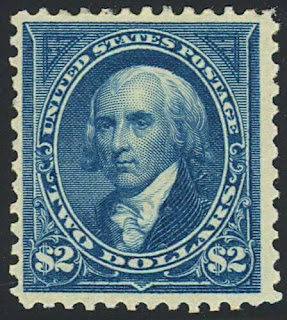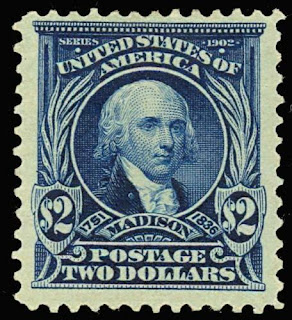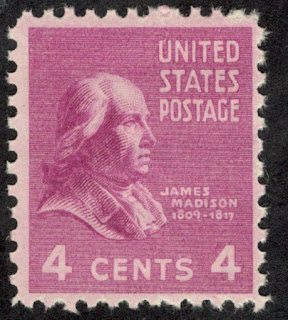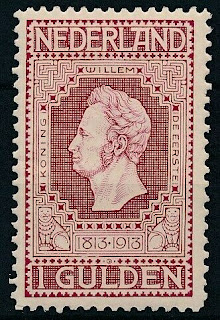Here are some events that happened on March 16th. It could be an event or a person that died or was born on that day
1581 Born: Pieter Corneliszoon Hooft, Dutch historian and poet (d. 1647)
Pieter Corneliszoon Hooft (16 March 1581 in Amsterdam – 21 May 1647 in The Hague) - Knight in the Order of Saint Michael - was a Dutch historian, poet and playwright who lived during the Dutch Golden Age.
Pieter Corneliszoon Hooft, often abbreviated to P.C. Hooft, was born in Amsterdam as the son of the then mayor, Cornelis Hooft. Hooft was also uncle to Cornelis and Andries de Graeff.
In 1598, in preparation for his career as a merchant, his father sent him to France and Italy, but Pieter Corneliszoon Hooft was more interested in art and was deeply impressed by the Italian renaissance.
Hooft was a prolific writer of plays, poems and letters, but from 1618 onwards he concentrated on writing a history of the Netherlands (Nederduytsche Historiën), inspired by Roman historian Tacitus. His focus was primarily on the Eighty Years' War between the Netherlands and Spain and though he tried to be as impartial as possible, he did succeed.
As a poet, he was influenced by his Renaissance contemporaries in France and Italy.
Dutch stamp depicting P.C. Hooft

1751 Born: James Madison, American academic and politician, 4th President of the United States (d. 1836)
James Madison Jr. (March 16, 1751 – June 28, 1836) was an American statesman, lawyer, diplomat, philosopher and Founding Father who served as the fourth president of the United States from 1809 to 1817. He is hailed as the "Father of the Constitution" for his pivotal role in drafting and promoting the Constitution of the United States and the United States Bill of Rights. He co-wrote The Federalist Papers, co-founded the Democratic-Republican Party, and served as the fifth United States secretary of State from 1801 to 1809.
Born into a prominent Virginia planter family, Madison served as a member of the Virginia House of Delegates and the Continental Congress during and after the American Revolutionary War. He became dissatisfied with the weak national government established by the Articles of Confederation and helped organize the Constitutional Convention, which produced a new constitution to supplant the Articles of Confederation. Madison's Virginia Plan served as the basis for the Constitutional Convention's deliberations, and he was one of the most influential individuals at the convention. Madison became one of the leaders in the movement to ratify the Constitution, and he joined with Alexander Hamilton and John Jay in writing The Federalist Papers, a series of pro-ratification essays that was one of the most influential works of political science in American history.
After the ratification of the Constitution, Madison emerged as an important leader in the United States House of Representatives and served as a close adviser to President George Washington. He was the main force behind the ratification of the United States Bill of Rights, which enshrines guarantees of personal freedoms and rights within the Constitution. During the early 1790s, Madison came to oppose the economic program and accompanying centralization of power favored by Secretary of the Treasury Alexander Hamilton. Along with Thomas Jefferson, Madison organized the Democratic-Republican Party, which was, alongside Hamilton's Federalist Party, one of the nation's first major political parties. After Jefferson won the 1800 presidential election, Madison served as secretary of State from 1801 to 1809. In that position, he supervised the Louisiana Purchase, which doubled the size of the United States.
Madison succeeded Jefferson with a victory in the 1808 presidential election. After diplomatic protests and a trade embargo failed to end British attacks against American shipping, he led the United States into the War of 1812. The war was an administrative morass and ended inconclusively, but many Americans saw it as a successful "second war of independence" against Britain. The war convinced Madison of the necessity of a stronger federal government, and he presided over the creation of the Second Bank of the United States and the enactment of the protective Tariff of 1816. He retired from public office in 1817 and died in 1836. Madison is considered to be one of the most important Founding Fathers of the United States, and historians have generally ranked him as an above-average president.
US stamps depicting Madison
1815 – Prince Willem proclaims himself King of the United Kingdom of the Netherlands, the first constitutional monarch in the Netherlands.
The United Kingdom of the Netherlands (Dutch: Verenigd Koninkrijk der Nederlanden; French: Royaume-Uni des Pays-Bas) is the unofficial name given to the Kingdom of the Netherlands as it existed between 1815 and 1839. The United Netherlands was created in the aftermath of the Napoleonic Wars through the fusion of territories that had belonged to the former Dutch Republic, Austrian Netherlands, and Prince-Bishopric of Liège. The polity was a constitutional monarchy, ruled by William I of the House of Orange-Nassau.
The polity collapsed in 1830 with the outbreak of the Belgian Revolution. With the de facto secession of Belgium, the Netherlands was left as a rump state and refused to recognize Belgian independence until 1839 when the Treaty of London was signed, fixing the border between the two states and guaranteeing Belgian independence and neutrality as the Kingdom of Belgium.
Dutch stamps issued in 1913 depicting King William I
Stamps issued in 1963 to commemorate 150 years of independence
1914 Died: Charles Albert Gobat, Swiss lawyer and politician, Nobel Prize laureate (b. 1843)
Charles Albert Gobat (21 May 1843 – 16 March 1914) was a Swiss lawyer, educational administrator, and politician who jointly received the Nobel Peace Prize with Élie Ducommun in 1902 for their leadership of the Permanent International Peace Bureau.
After completing his Ph.D, Gobat began his practicing law in Bern and also lectured on French civil law at Bern University. He then opened an office in Delémont in the canton of Bern, which soon became the leading legal firm of the district.
After practicing law for fifteen years, he became involved in politics and education. In 1882, he was appointed superintendent of public instruction for the canton of Bern, a position he held for thirty years. He was a progressive in educational philosophy and he made many important reforms in the education system. He reformed the system of primary training, obtained increased budgetary support to improve the teacher-pupil ratio, supported the study of living languages, and provided pupils with an alternative to the traditionally narrow classical education by establishing curricula in vocational & professional training.
He won acclaim for his erudite République de Berne et la France pendant les guerres de religion, which was published in 1891 and also widespread recognition for A People's History of Switzerland, which was published in 1900.
He also pursued a career in politics. He was elected to many important positions. He was elected to the Grand Council of Bern in 1882. From 1884 to 1890, he was a member of the Council of States of Switzerland and from 1890 until his death in 1914, he was a member of the National Council, the other chamber of the central Swiss legislative body. In both politics and education, he was a liberal reformer. In 1902, he sponsored several legislation which applied the principle of arbitration to commercial treaties. Gobat worked with the Inter-Parliamentary Union, which was founded by William Randal Cremer, the winner of the Nobel Peace Prize in 1903, in 1889. In 1892 he became the president of the union's fourth conference, which was held in Bern and which founded the Bureau Interparlementaire. He served as general secretary of the bureau, an information office dealing with peace movements, international conciliation, and communication among national parliamentary bodies. The third conference of the union, held in Rome in 1891, established the International Peace Bureau, of which Gobat was director when it was awarded the Nobel peace prize in 1910.
Stamp issued by Guinea Bissau depicting Albert Gobat
1930 Born: Sully Prudhomme, French poet and critic, Nobel Prize laureate (d. 1907)
René François Armand (Sully) Prudhomme (16 March 1839 – 6 September 1907) was a French poet and essayist. He was the first winner of the Nobel Prize in Literature in 1901.
Born in Paris, Prudhomme originally studied to be an engineer, but turned to philosophy and later to poetry; he declared it as his intention to create scientific poetry for modern times. In character sincere and melancholic, he was linked to the Parnassus school, although, at the same time, his work displays characteristics of its own.
His first collection, Stances et Poèmes ("Stanzas and Poems", 1865), was praised by Sainte-Beuve. It included his most famous poem, Le vase brisé. He published more poetry before the outbreak of the Franco-Prussian War. This war, which he discussed in Impressions de la guerre (1872) and La France (1874), permanently damaged his health.
During his career, Prudhomme gradually shifted from the sentimental style of his first books towards a more personal style which unified the formality of the Parnassus school with his interest in philosophical and scientific subjects. One of his inspirations was clearly Lucretius's De rerum natura, whose first book he translated into verse. His philosophy was expressed in La Justice (1878) and Le Bonheur (1888). The extreme economy of means employed in these poems has, however, usually been judged as compromising their poetical quality without advancing their claims as works of philosophy. He was elected to the Académie française in 1881. Another distinction, Chevalier de la Légion d’honneur, was to follow in 1895.
After, Le Bonheur, Prudhomme turned from poetry to write essays on aesthetics and philosophy. He published two important essays: L'Expression dans les beaux-arts (1884) and Réflexions sur l'art des vers (1892), a series of articles on Blaise Pascal in La Revue des Deux Mondes (1890), and an article on free will (La Psychologie du Libre-Arbitre, 1906) in the Revue de métaphysique et de morale.
At the end of his life, his poor health (which had troubled him ever since 1870) forced him to live almost as a recluse at Châtenay-Malabry, suffering attacks of paralysis while continuing to work on essays. He died suddenly on 6 September 1907, and was buried at Père-Lachaise in Paris.
French stamp and First Day Cover depicting Sully Prudhomme












No comments:
Post a Comment